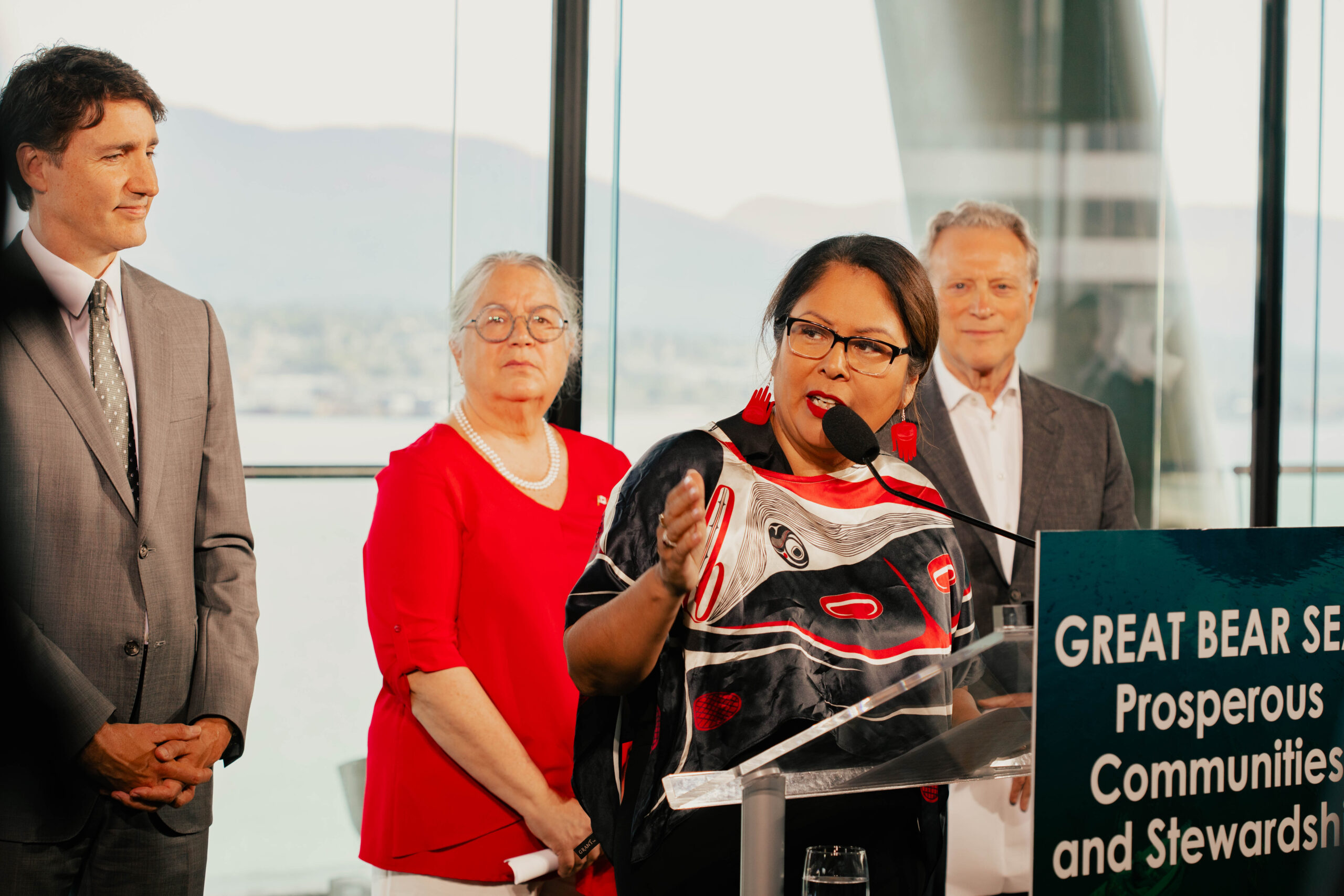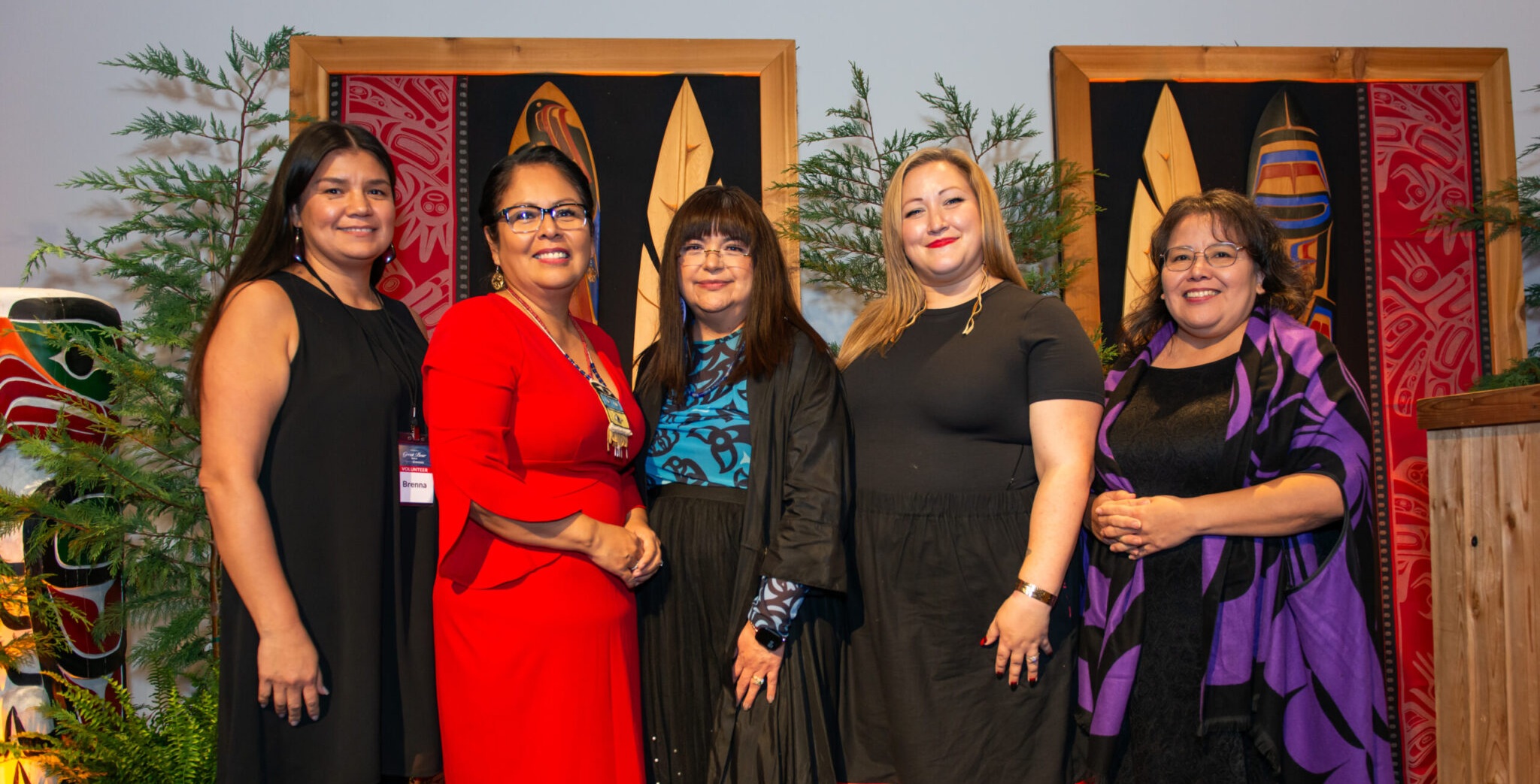FOR IMMEDIATE RELEASE
Ottawa – (December 4, 2018) – A delegation of First Nations Chiefs is in Ottawa to urge the Senate to pass Canada’s Oil Tanker Moratorium Act (Bill C-48) to protect their traditional territories from the risk of oil spills.
“As the Hereditary Chiefs and political leaders of the North Pacific Coast we strongly support the passage of the Oil Tanker Moratorium Act,” said spokesperson Chief Marilyn Slett of the Heiltsuk Nation and President of Coastal First Nations. “The federal government’s introduction of Bill C-48 last year was welcomed by First Nations and many British Columbians. Now we ask the Senate to pass this Bill and recognize its intent to create new partnerships with Indigenous and coastal communities.”
The delegation of 25 Hereditary Chiefs and elected leaders from 10 Nations represent more than 10,000 residents living along a massive ocean region spanning the northern tip of Vancouver Island to the Alaska Panhandle. “We are at a pivotal time in our shared history with Canada,” said Chief Slett. “This Act to prevent oil tanker traffic on our coast has been at least 40 years in the making. For First Nations of the Northwest Coast, its passage into law would mean we have taken another step in building our nation-to-nation relationship with Canada.”
Bill C-48 will prohibit oil tankers carrying more than 12,500 metric tons of crude oil or persistent oil from stopping or unloading their cargo at ports along British Columbia’s north coast, replacing an informal voluntary ban that has been in place since 1985.
First Nations have been working to build a sustainable ocean-based economy in the region and establish marine protected areas in the globally-renowned Great Bear Rainforest and Gwaii Haanas National Marine Conservation Area. Seafood from the region is exported around the world and the North Pacific Coast has become an international travel destination.
According to Hereditary Chief Garry Reece of the Allied Tribes of Lax Kw’alaams, coastal First Nations have established a multi-million dollar marine economy. “Lax Kw’alaams has the largest fishing fleet on the coast and a state-of-the-art cannery,” Chief Reece said. “We are not willing to trade our marine economy for a boom-and-bust industry.”
A large network of north coast communities supporting the oil tanker moratorium rely on a pristine ocean, Reece said. “We must ensure we protect the marine-based industries we all depend on from oil spills and other threats.”
First Nations are also concerned about an increase in negative climate change impacts if unsustainable industrial activities are allowed to continue. “We are all witnessing worldwide drought, floods, fires and storms,” said Haida Hereditary Chief Gidansda (Guujaaw). “The Senate must seize a rare opportunity to help stem the tide of an otherwise deteriorating situation.”
Delegation representatives say they are encouraged by the federal government’s commitment to passing the Act and urge the Senate to support First Nations’ efforts to protect their coastal resources. “Those in a position of trust, as the Senate is, must do what they can,” said Chief Gidansda. “We have to look beyond short-term economics and support the moratorium in the interests of the well-being of the planet.”
-30-
For more information:
Chief Marilyn Slett, Heiltsuk Nation
President, Coastal First Nations
(250) 957-7721
Haida Hereditary Chief Gidansda (Guujaaw)
(250) 637-1190
Coastal First Nations Media Contact
westseasmedia@gmail.com
(343) 883-8224
Photo and Video Links: https://www.dropbox.com/sh/vf4nwnouevlkhbz/AACbxlifaqhcU8Upwufol5_Ma?dl=0


